Know Your Rights
California law protects your right to organize. Here's what you need to know.
As public employees in California, you have strong legal protections when organizing a union. The Meyers-Milias-Brown Act guarantees your right to organize, join a union, and engage in collective bargaining without fear of retaliation.
You Have the Right to:
- Talk with coworkers about wages, working conditions, and organizing
- Sign a union card without fear of retaliation
- Attend union meetings and organizing activities
- Wear union buttons, stickers, or t-shirts at work
- Distribute union literature in non-work areas during breaks
- Ask questions about the union
Management Cannot:
- Threaten job loss or reduced hours for union activity
- Interrogate you about union support
- Promise benefits to discourage organizing
- Spy on union meetings or activities
- Retaliate against union supporters
- Discipline workers for organizing
Confidentiality
Your union card is confidential. Management has no legal right to know who signed cards.
All conversations with organizers are protected. We meet privately to ensure your information stays confidential.
AB 1484: New Rights for Temporary Employees
California's AB 1484 became law in October 2023, expanding rights for temporary public employees. This law strengthens your ability to organize and requires transparency from your employer.
What Your Employer Must Provide to You
Under AB 1484, when you're hired as a temporary employee, your employer is legally required to give you:
Job Description
Clear description of your duties and responsibilities
Wage & Benefits Info
Your wage rate and what benefits you're eligible for
Employment Length
How long your temporary position is expected to last
Path to Permanent Work
Clear procedures for applying to permanent positions
Important: This information must be provided when you're hired. If you haven't received this, your employer may be violating AB 1484.
Bargaining Unit Inclusion
AB 1484 strengthens temporary employees' right to be included in union bargaining units with permanent employees who do similar work. This means:
- Temporary employees can be automatically included in the same bargaining unit as permanent staff
- Once included, the employer must negotiate wages, hours, and working conditions for temporary employees
- Your employer must share employment information with your union within 5 business days of hire
This is why we're organizing: AB 1484 gives us stronger legal standing to demand a voice in our workplace and equal treatment.
What This Means for Our Campaign
AB 1484 is a powerful tool for our organizing effort. It means:
- We have the law on our side - AB 1484 specifically recognizes temporary employees' right to organize
- Transparency is required - Your employer must tell you about benefits, advancement paths, and employment terms
- We can demand inclusion - Temporary workers doing similar work to permanent staff should have equal representation
- Information sharing is mandatory - Once we have union recognition, the employer must share employment info with us
If your employer isn't complying with AB 1484, that's another reason we need a union to enforce our rights.
What If Management Violates Your Rights?
Examples of Illegal Retaliation:
- Cutting your hours after you sign a union card
- Giving you worse shifts because you talked about organizing
- Disciplining you for union activity while ignoring similar behavior by non-union workers
- Suddenly enforcing rules strictly against union supporters
- Threatening to close the facility or eliminate positions
- Interrogating you about who is organizing or who attended meetings
If any of this happens:
- Document everything - Write down dates, times, witnesses, and what was said
- Contact us immediately - Email or call the organizing committee
- File an unfair labor practice charge - We'll help you file with the Public Employment Relations Board (PERB)
You Are Protected By Law
The Meyers-Milias-Brown Act (MMBA) is California's collective bargaining law for local government employees. It explicitly protects your right to:
- Form, join, and participate in employee organizations
- Engage in collective bargaining through representatives
- Be free from employer interference, restraint, or coercion
If your employer violates the MMBA, the Public Employment Relations Board (PERB) can order them to: restore lost wages, reinstate fired workers, post notices admitting wrongdoing, and cease illegal behavior.
Common Questions
Can I be fired for organizing?
No. It's illegal under California law. If you're fired for organizing, we can file an unfair labor practice charge and PERB can order your employer to reinstate you with back pay.
Can management ask me about the union?
They can have casual conversations, but interrogating you about who supports the union, who signed cards, or who attended meetings is illegal. You have the right to decline to answer questions about your union activity or beliefs.
Can I talk about the union at work?
Yes. You can discuss organizing during breaks, before/after shifts, and in non-work areas like locker rooms. Your employer can restrict organizing during work time in work areas, but they must apply this rule equally to all topics (not just union talk).
What if I'm pressured to oppose the union?
Management cannot threaten, coerce, or promise benefits to discourage union support. If this happens, document it and contact us immediately. This is an unfair labor practice.
Will management find out I signed a card?
No. Union authorization cards are confidential. Your employer will never see your card or know who signed unless you choose to tell them. Only the union and PERB have access to cards.
Additional Resources
AFSCME Resources
California Labor Law
Questions?
Contact the organizing committee:
All inquiries are confidential and protected by law.
Your Rights Are Protected
Don't let fear stop you from organizing. The law is on your side.
